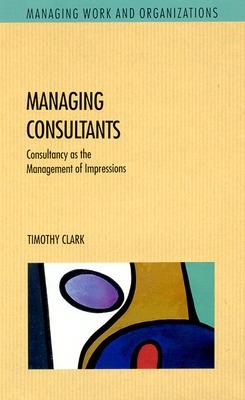Managing Work and Organizations
1 total work
Managers are increasingly being convinced from all sides that traditional structures, systems and cultures are no longer appropriate to today's competitive conditions; and that organizations must change fundamentally. It is in the context of these pressures that managers feel it increasingly necessary to seek external support by turning to...Read more
Managers are increasingly being convinced from all sides that traditional structures, systems and cultures are no longer appropriate to today's competitive conditions; and that organizations must change fundamentally. It is in the context of these pressures that managers feel it increasingly necessary to seek external support by turning to those who offer some solution to these dilemmas - the management consultants. This book argues that the initial selection of a management consultancy and the subsequent evaluation of the quality of service they deliver are inherently problematic. Two root causes are identified: the structure and dynamics of the management consultancy industry; and the characteristics of the management consultancy service. Timothy Clark examines how these problems are overcome by revealing the foundations of a successful and long-term client-consultant relationship. In a departure from previous analyses of management consultancy he argues that the key to understanding consultancy and its success is to appreciate that successful consultancy, in it methods at least, emphasizes the active management of the client-consultant relationship. At the core of successful consultancy is the art of impression management. A consultant seeks to create a reality which persuades the client that they have purchased a high-quality service. The work of consultants is analysed and understood in terms of the theatrical analogy or dramaturgical metaphor. A consultancy intervention is therefore conceived of as a dramatic event. This is illustrated with reference to two types of consultancy work - executive search (i.e. headhunting) and the work of management gurus.
